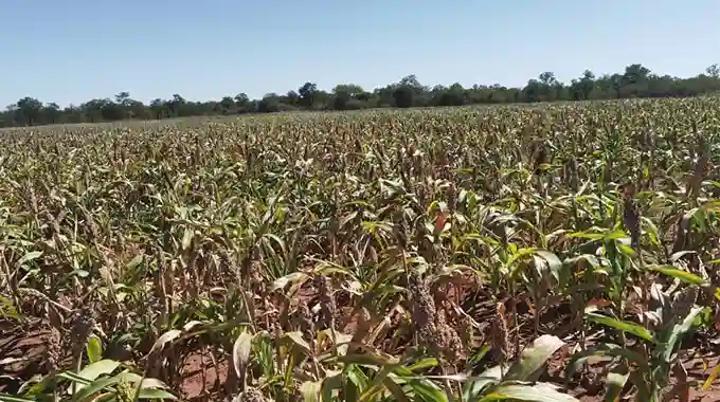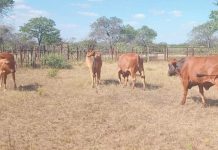Africa-Press – Zimbabwe. A 74-year-old Gwanda-based farmer, Emmanuel Nare, is expecting a good harvest despite a severe drought during the 2023/24 summer cropping season after he put seven hectares under sorghum.
Nare is among the pioneer farmers who have fully embraced the growing of drought-tolerant traditional small grains as part of efforts to ensure food security in the country.
As reported by the Chronicle, Nare is based at Reata Ranch in Ward 23. The farmer said he learnt that a drought was looming, he sought advice on the varieties of traditional grains to grow and settled for sorghum Sila and SV4 varieties.
Nare has started harvesting his sorghum. He said:
I have seven hectares under sorghum, three hectares under the SV4 variety and four hectares under the Sila variety.
When I heard that we would experience the El Nino drought I inquired with an Agritex official on what sorghum variety I could grow.
I have always been producing traditional grains, but I then realised that I had to adjust and plant a variety that will do well under these weather conditions and I’m glad that this has paid off.
Nare urged other farmers to take advice from Agritex officers as this can help them make the right choices.
He said he only had two hectares under maize, but the crop was a total write-off. Nare said he intends to deliver his sorghum to the Grain Marketing Board. He said:
As farmers, we must ensure that we are highly productive on the land that we have so that we can contribute towards ensuring food and nutrition security.
If we could all take up the advice that we are being given and seek even more knowledge, we can record good yields each year. As farmers, we need to be innovative and seek new solutions.
The Permanent Secretary for the Ministry of Lands, Agriculture, Fisheries, Water and Rural Development, Obert Jiri, who recently visited the ranch, said:
We always emphasise that household food security is premised on climate-proofing at the household level. This area is now Region 5B, which is unsuitable for cropping, but we see here a farmer who climate-proofed knowing what to grow in this area and the choice of the variety of the crop.
The farmer is growing traditional grains, which we know will survive dry weather conditions. Even in this El Nino-induced drought, the farmer made good choices.
He respected the agro-ecological region and chose traditional grains, which we prescribe for this particular agro-ecological region.
Traditional crops such as sorghum, pearl millet and rapoko are slowly becoming popular not only because of climate change but also because people are becoming aware of their high nutritional value and the technology advancement has made it easier to harvest and process small grains.
Zimbabwe is one of the countries in southern Africa hardest hit by El Nino, which has resulted in poor rainfalls and crop failure across the country.
For More News And Analysis About Zimbabwe Follow Africa-Press






